Pasture
All Pasture Content
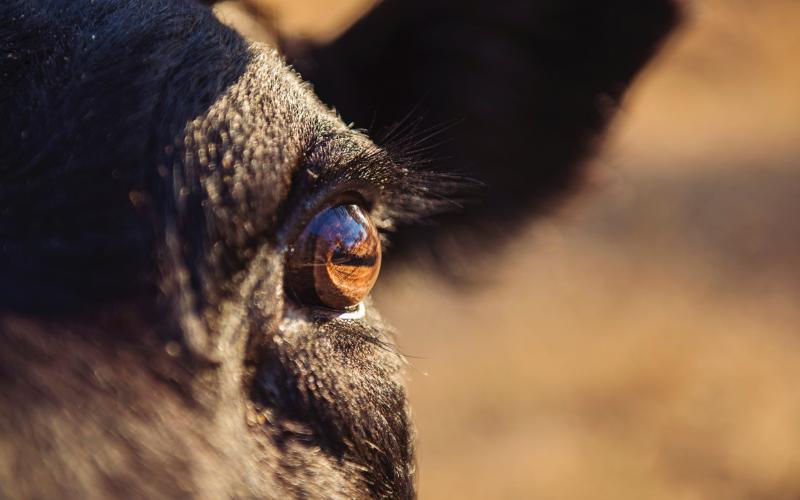
Anthrax: Vaccination Considerations
Anthrax is caused by bacteria, Bacillus anthracis, which has the ability to form very resistant spores in the soil. These spores can remain viable for many years on pasture, and become reactivated when the right environmental conditions exist. Fortunately for cattle producers, losses due to anthrax can be prevented through use of a vaccine that has proven its effectiveness through the years.
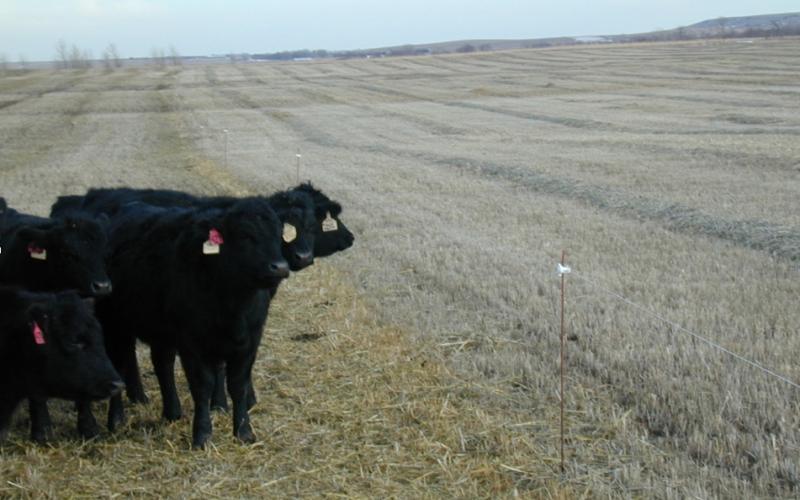
Swath Grazing: Extending the Grazing Season
One proposed way to cut fall/winter feeding costs is to extend the grazing season and allow the livestock to harvest the resource instead of relying on mechanical harvest.
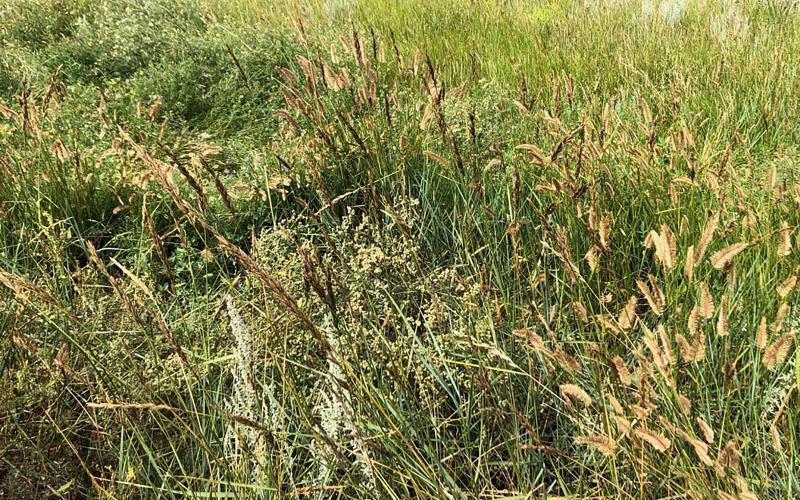
Ergot in Western Wheatgrass and the Potential Effects for Winter Grazing
2019 has been a year fraught with challenges for ranchers across South Dakota. Abundant precipitation is usually a blessing, however, wet conditions coupled with a cool spring followed by warmer temperatures has caused another problem across the rangelands of South Dakota: ergot poisoning.
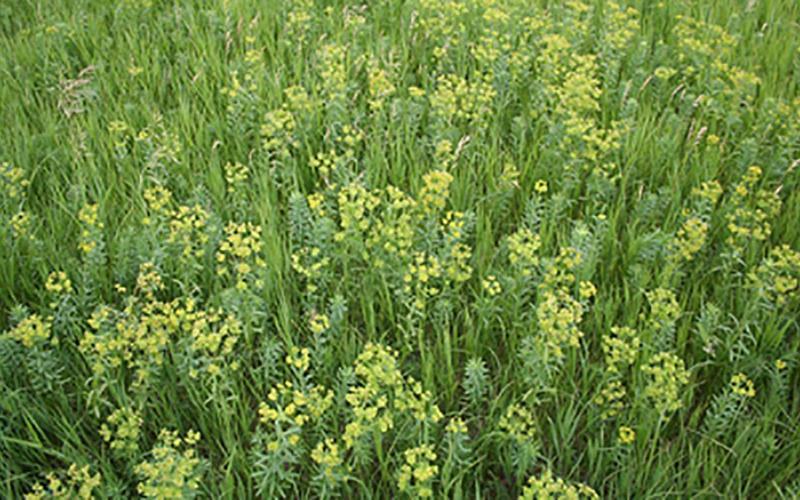
SDSU Extension Provides Leafy Spurge and Noxious Weed Management Recommendations
May 22, 2020
One of the many challenges producers face each year is weed control. Leafy spurge, in particular, can be difficult to manage.

South Dakota Delegate, Matea Gordon, to Present at the Society for Range Management Annual Conference in Denver
February 07, 2020
Matea Gordon, sophomore at Sturgis Brown High School, has been selected by the South Dakota section of the Society for Range Management (SRM) to participate in the High School Youth Forum (HSYF).
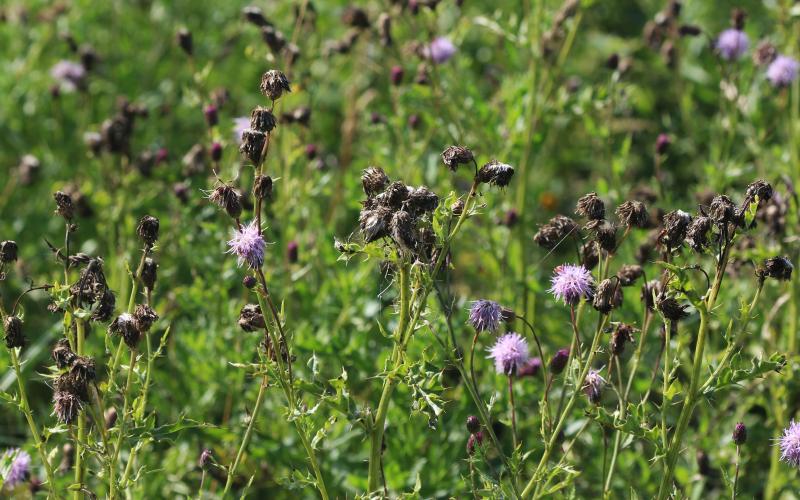
Fall Noxious Weed Control
Fall weed control can give the best weed control, but it also can be a poor time. If the noxious weeds were sprayed or clipped earlier this summer, and there is good weed growth now, this would be an excellent time to spray these weeds and get a good kill.
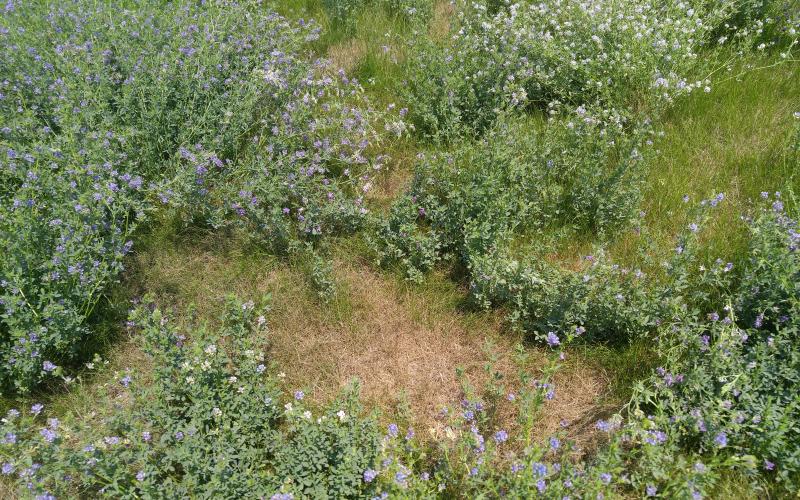
Scouting for Grasshoppers in Pasture and Alfalfa
For 2019, we have either received reports of very high grasshopper numbers or of very low or nearly absent populations. Most reports of high populations have originated from areas near rivers and other waterways. This suggests that the rich foliage along the banks of waterways has provided excellent habitat for grasshoppers and has boosted their populations in those areas.
![A herd of cattle gather around a stock pond on a vast, lush grassland. Courtesy: USDA [CC BY 2.0]](/sites/default/files/styles/teaser_800x500/public/2019-05/W-00231-00-cattle-grazing-grassland-pasture-range.jpg?h=8f818b46&itok=6GS1_Ww0)
2017 Weed Control: Pasture and Range
There are 24 million acres of native and tame pasture and range as well as 1.4 million acres of grass hayland in South Dakota.
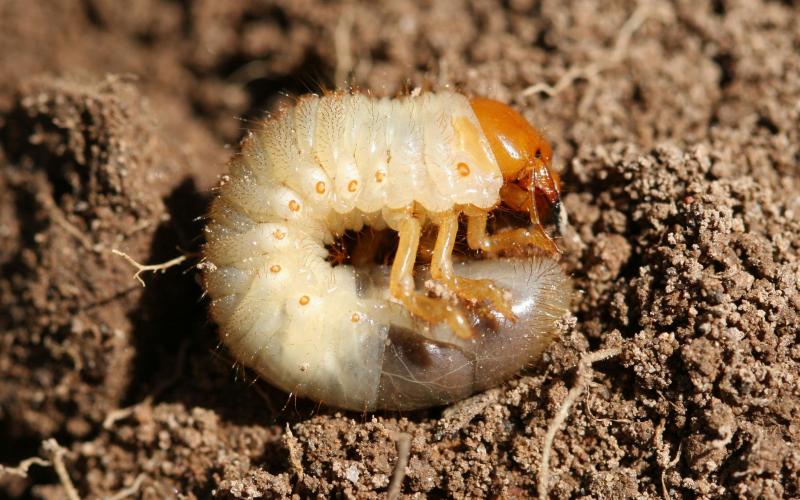
2019 June Beetle Update
In the spring of 2016, we received reports of large populations of June beetles in Central South Dakota, which indicates the start of a new cycle for the grubs. Based on these reports, it is estimated that 2019 will be the big emergence year if the 2016 adults were successful and their grubs survived.
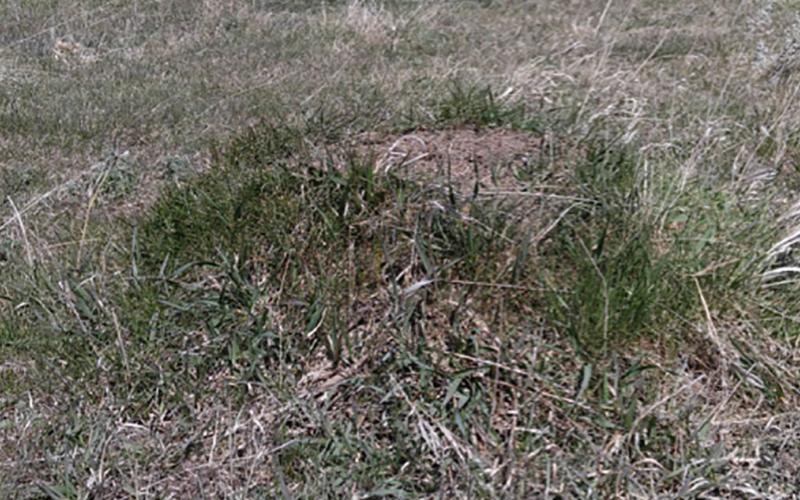
Are Ant Mounds in Pastures Bad?
We often receive reports of large ant mounds in a pastures and rangeland. These mounds are the creation of thatching ants, which are common in South Dakota. Although these mounds are often considered a nuisance, the ants may play an important role as predators of potential pest insects.